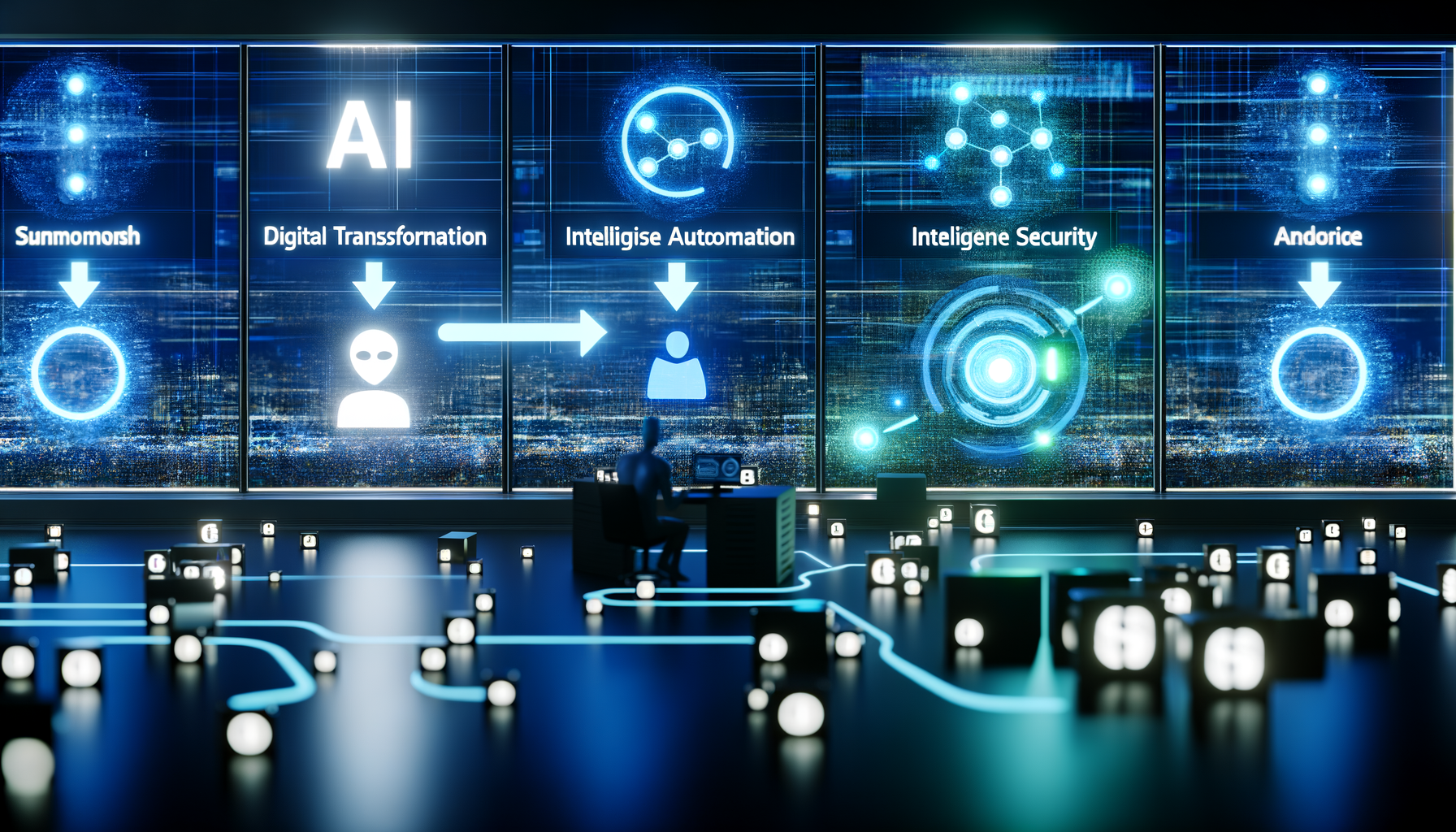In 2025, the conversation isn't just about adopting AI—it's about mastering it to revolutionize your business operations. With a projected 35% increase in AI adoption among businesses by 2025, the time to integrate is now. This guide will arm you with strategic insights, from smart automation to agentic AI, ensuring you lead the charge into a more efficient, competitive future.
Understanding AI Integration

Tech team collaborating in code review session, diverse and focused.
AI integration is the seamless embedding of artificial intelligence into existing business processes. Think of it as adding a turbocharger to your operations, enhancing speed and precision without reinventing the wheel.
For CTOs and CIOs, AI integration involves aligning AI capabilities with business goals, ensuring systems talk to each other fluently. It's about unlocking potential rather than just adding tech.
Quicklook's proprietary systems make AI integration not just feasible but strategic, ensuring scalability and security are baked in from the start.
LIST
- •Streamline workflows
- •Enhance decision-making
- •Boost productivity
Leveraging Intelligent Automation

Diagram of cloud migration with automation pathways highlighted.
Intelligent automation combines AI with robotic process automation (RPA) to handle repetitive tasks efficiently. It's like having a digital workforce that never needs a coffee break.
By automating mundane processes, your human talent can focus on strategic initiatives, driving innovation and ROI. According to McKinsey, companies that leverage automation can reduce operational costs by up to 30% (2023).
Quicklook's solutions integrate seamlessly with your current systems, reducing friction and accelerating time-to-value.
CALLOUT
Did you know? Automated processes can lead to 80% faster task completion.
The Role of Agentic AI

Visualization of multi-agent systems in a business network.
Agentic AI, or multi-agent systems, involve AI entities that operate semi-independently to achieve specific objectives, much like your own digital strategy team.
These systems are ideal for complex environments, where decisions need to be made in real-time. For instance, deploying agentic AI in supply chain management can dynamically adjust to disruptions, maintaining smooth operations.
Quicklook's expertise in developing these systems ensures they are not just reactive but predictive, aligning with your business's unique needs.
QUOTE
Agentic AI transforms businesses by acting as a proactive partner, not just a tool.
Overcoming Common Challenges

Graph showing up-trending analytics in AI adoption and security advancements.
While the benefits are clear, AI integration isn't without its hurdles—security concerns, talent shortages, and legacy system compatibility are top of mind.
Security is paramount; Quicklook ensures that its AI solutions come with enterprise-grade security certifications, safeguarding your data and privacy.
Bridging talent gaps is another area where Quicklook shines, offering training and support to bring your team up to speed with new technologies.
LIST
- •Security compliance
- •Talent development
- •Legacy system integration
Navigating the Future of AI

Futuristic cityscape with AI-driven innovations in action.
AI is not just a trend; it's the future of business efficiency. As AI technologies evolve, staying ahead means continuously adapting and integrating new advancements.
The future will see more personalized AI applications, with predictive analytics becoming a staple in decision-making processes. Businesses that harness these tools will outperform competitors, delivering superior customer experiences.
Quicklook is committed to guiding you through this evolution, offering solutions that are not just future-proof but future-driven.
CALLOUT
Embrace the future with AI: It's not just a tool—it's your competitive edge.
Frequently Asked Questions
QWhat are the latest trends in AI integration for businesses in 2025?
QHow can intelligent automation enhance operational efficiency in modern enterprises?
QWhat role does agentic AI play in transforming business processes?
Conclusion
AI integration and intelligent automation are pivotal for transforming businesses into agile, efficient entities ready to face future challenges.
Future Vision
Adopting AI isn't just about keeping up; it's about leading the charge into a smarter, more efficient future.
Schedule your AI audit with Quicklook.
